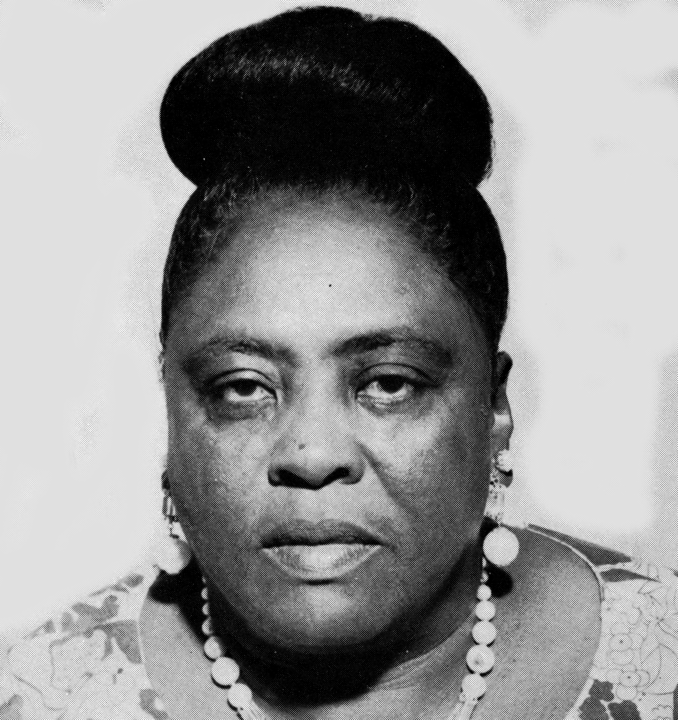
Fannie Lou Hamer
Born: October 6, 1917
Died: March 14, 1977
In 1917 Fannie Lou Hamer was born into the poorest section of the poorest state in the Union. Sixty years later, she died there. In between, she managed to shake up the state of Mississippi, the national Democratic Party, and almost lose her life in the process.
One of 20 children of a Mississippi sharecropping family, Hamer began picking cotton at the age of 6. She continued to work on plantations until 1962, when she was fired. That year a lot of things began to change for Fannie Lou.
In late August of 1962, Hamer attended a mass meeting in her town sponsored by civil rights groups. In The Universe Bends Toward Justice, Susan Kling writes of Hamer’s wonder at hearing the speakers at the meeting: “They really wanted to change the world I knew—they wanted Blacks to register to vote!”
Fannie Lou and 17 others agreed to register the next Friday at the Sunflower County Courthouse. They traveled the 26 miles by bus, only to find themselves greeted by a milling crowd of police and rifle-toting white men. The group’s resolve began to waver, but Fannie Lou marched off the bus and into the courthouse, the others trailing behind her.
Inside, the clerk put the group through a battery of 21 questions, including one that required them to copy and interpret a section of the Mississippi constitution. All 17 failed the literacy test. But Fannie Lou swore that she would keep coming back until she passed.
She finally passed the test on her third try in January of 1963. In the intervening months, Hamer had been fired from her job and lost her house and car because of her attempt to register. She was shot at while staying with friends; she and her family were threatened constantly.
In June of 1963, as Hamer and a group of civil rights activists were returning from a voter education workshop in South Carolina, they were arrested in Winona, Mississippi. Fannie Lou and the others were brutally beaten; as a result, she suffered kidney damage and lost most of the sight in her left eye.
The beating only strengthened Hamer’s determination to continue urging Black people to register to vote. Although she often said, “I’m sick and tired of being sick and tired,” she found enough energy to become vice chair of the Mississippi Freedom Democratic Party. In 1964, Hamer and other delegates from the MFDP went to the Democratic Convention in Atlantic City with evidence that the all-white Mississippi delegation had been fraudulently elected. Lyndon Johnson, alarmed at the prospect of Hamer and the others ousting the white delegation, blocked the challenge. In the end, only two at-large delegates from the MFDP were seated—and those were chosen by Johnson himself.
“I used to say when I was working so hard in the fields,” said Hamer, “if I could go to Washington—to the Justice Department, to the FBI—get close enough to let them know what was going on in Mississippi, I was sure that things would change in a week. Now that I have traveled across America, been to Congress, to the Justice Department, to the FBI, I am faced with things I’m not too sure I wanted to know. The sickness in Mississippi is not a Mississippi sickness. This is America’s sickness.”
But Hamer stoutly refused to fall into hatred. “I feel sorry for anybody that could let hate wrap them up,” she said. “Ain’t no such thing as I can hate anybody and hope to see God’s face.”
Originally published in the May 1992 issue of Salt magazine, ©Claretian Publications.
Image: Broadside: Elect Mrs. Fannie Lou Hamer, state senator. Sysid 124594. Scanned as TIFF in 2014/06/09, Mississippi Department of Archives and History, Public Domain, via Wikimedia Commons








